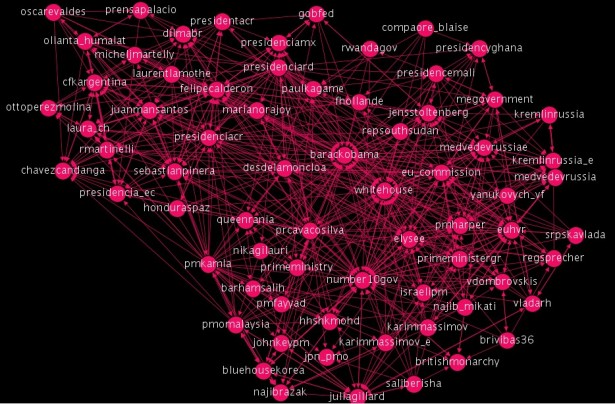The UK Deputy Prime Minister recently wrote in The Guardian: “Twitter has given me a voice and a connection to millions of people that the distorted prism of the mainstream media denied.”
We may or may not use Twitter for that exact reason too, Prime Minister.
Twitter has become a new way to communicate with world leaders (we’re fans) and a way for these leaders to communicate with each other. On the one hand it allows heads of state and government to broadcast their daily activities and government news to an ever-growing audience, on the other, it allows citizens direct access to their leaders.
In the first-ever global study of world leaders on Twitter, Twiplomacy* shows that presidents, prime ministers or their institutions in 125 countries have a presence on Twitter. Especially popular in North and South America, 83% and 75% of the heads of state and government, respectively, have a Twitter account. Three-quarters of European governments are active on Twitter, while in Africa and Asia the number drops to 60% and 56% respectively.
Barack Obama is the most followed world leader with 17,115,077 followers, and the 5th most popular account in the Twitterverse just behind Britney Spears. Venezuelan President Hugo Chávez is the second most followed leader with 3,152,608 followers, followed by the White House (2,951,928), Queen Rania of Jordan (2,174,187) and the UK prime minister (2,022,685). Presidents Abdullah Gül of Turkey, Felipe Calderón of Mexico, Dilma Rousseff of Brazil, Cristina Fernandez of Argentina, Juan Manuel Santos of Colombia and prime ministers Dmitry Medvedev of Russia and Recep Tayyip Erdoğan of Turkey all have more than one million followers.
Check out the Twiplomacy study in full here.
*Twiplomacy is a study of the use of Twitter by world leaders, conducted by leading global public relations and communications firm Burson-Marsteller.

Think people should hear about this?